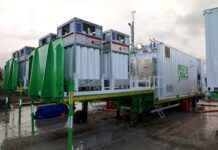
Philip Simpson of ReFood discusses the latest WRAP report on the cost of food waste and argues that a comprehensive strategy of reduction, recycling and re-use, combined with more stringent regulation, is the best way to tackle this global challenge.
Earlier in the year, WRAP (the Waste and Resources Action Programme) released its latest report ‘Strategies to achieve economic growth and environmental gains by reducing food waste’, in conjunction with the Global Commission on the Economy and Climate. In an era where we are facing a global food crisis and hundreds of millions of people are starving, the report reveals that one third of all food produced in the world ends up as waste. In the UK alone, WRAP estimates that annual food waste accounts for around 15 million tonnes of the 43 million tonnes of food that we purchase. The report puts the value of global consumer food waste at more than US $400 billion a year and this is expected to rise by around $600 billion by 2030.
Food is a vital resource, and one that requires significant labour, energy and water resources to produce, therefore we simply cannot go on wasting such a scarce commodity and the WRAP report argues that to not take action would be damaging to people, countries and the food system itself. Admittedly taking measures to reduce food waste does require investment but with it comes much greater environmental and economic benefits.
Benefits of food waste reduction
Indeed, the report estimates that a 20 to 50% reduction in consumer food waste could save between 120 to 300 billion US dollars a year by 2030, alongside mitigating the effects of climate change. An astonishing 7% of all global greenhouse emissions (GHGs) – 3.3 billion tonnes per year – result from food waste. WRAP estimates that by 2030, GHGs could be lowered by as much as one billion tonnes a year through reducing the amount of food we waste.
This latest report focuses on measures that could be taken by governments, businesses and consumers to reduce the amount of food waste produced throughout the supply chain. As well as practical changes, such as better information on packaging and lowering average fridge temperatures in developing countries, WRAP points to the benefits of educational campaigns, such as Love Food Hate Waste in the UK.
Helping consumers and businesses alike to reduce avoidable food waste is critical. But we can’t tackle the global food waste crisis just by overcoming this part of the problem alone; we also have to focus on what is happening to the food when it is thrown away. Food waste recycling is a growing sector in the UK and ReFood is an industry leader. As such, we are working to raise awareness and change behaviour when it comes to the way we dispose of food waste through our Vision 2020 campaign. Unfortunately, a great deal of the food waste we produce in this country still goes to landfill and if we don’t take more action to reduce this, then the UK is likely to reach current landfill limits in around three years’ time. This means that recycling our food waste, rather than sending it to landfill, is a necessity.
Ways of recycling food waste
Traditionally, food waste has been recycled via combustion technology. However, in the UK, anaerobic digestion (AD) is a much more sustainable alternative and a technology that ReFood has pioneered. The process utilises the natural degradation process and saves around 0.15 tonnes of CO2 per tonne of waste, compared to generating 0.45 tonnes of CO2 when sent to landfill. Our latest facility in Widnes was opened last year and is the first AD gas-to-grid (G2G) plant of its kind in Europe. It has been specifically developed to process waste from any point in the food chain and recycle it into gas that is of good enough quality to be injected straight in to the National Grid network.
Through the G2G process, ReFood Widnes sees biogas (created by the natural breakdown of food waste) cleaned of impurities, dried and upgraded to a high methane content. This end product resembles the quality of natural gas, which means that it can be exported, via the National Grid, to homes and businesses across the country. In the future this will enable renewable gas to make up a significant proportion of the UK’s residential gas demand. We are also closing the recycling loop because the end product of AD from food waste is a nutrient rich fertiliser which farmers can use to treat crops.
ReFood Widnes is capable of recycling 120,000 tonnes of food waste and liquids every year, generating up to 180 million KWh of biomethane, which can provide enough energy for 10,000 homes across the region.
Cost savings for food waste producers
Most importantly for waste producers, we can actually save businesses up to 45% on waste costs by diverting food waste from landfill. Furthermore, we also make the process of separating food waste much easier with bin sanitising and swapping services. Food waste recycling, therefore, makes both economic and corporate sense.
The AD industry has huge potential – not only to help deal with the food waste challenge, but also to help the UK meet its renewable energy targets. We are already seeing growth in this sector with some large supermarket chains already adopting AD technology to dispose of their waste. These are exciting times for the industry and there are now a total of 117 operational AD plants in the UK. Our business alone increased its own AD capacity by 240% in 2014.
Have we reached a commercial tipping point?
However, the industry is at a tipping point. There is a sense of frustration that more isn’t being done to push food recycling to enable businesses like ours to commit to even more capital investment in plants. However, there is also increasing competition to secure food waste for existing plants – with many more in the pipeline, we could easily see the many plants quickly become commercially unviable.
What is needed, therefore, is a national waste strategy that focuses on separating food waste for recycling and taking advantage of the value that is in such material. Regulation is critical in this and ReFood is campaigning to see a total ban on food waste sent to landfill by 2020.
Currently, around 40% of all food waste created in the UK goes to landfill – around 6 million tonnes. England is now the only administration in the UK not to have implemented proper legislation surrounding the environmental management of food waste. If the UK as a whole were to implement legislation prohibiting sending food waste to landfill today, by 2020 we would generate over 1.1tW of renewable energy, lower greenhouse gases by 27 million tonnes, return over 1.3 million tonnes of nutrients to the soil and save the public sector £3.7 billion.
As the WRAP report demonstrates, the amount we waste globally is shocking and shows the importance of reducing food waste. However, this needs to be supported by regulation to ensure that the waste we are producing is recycled and re-used wherever possible. Surely there is no excuse for sending waste to landfill that could actually be put to positive use?







